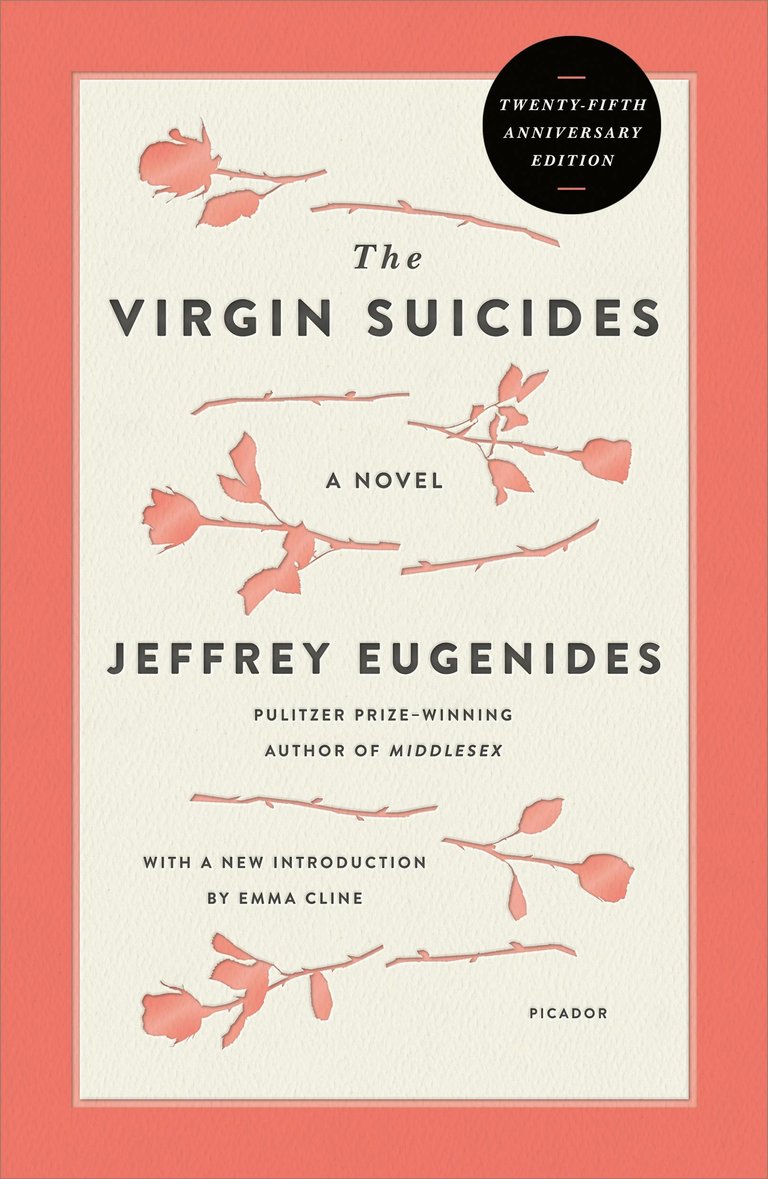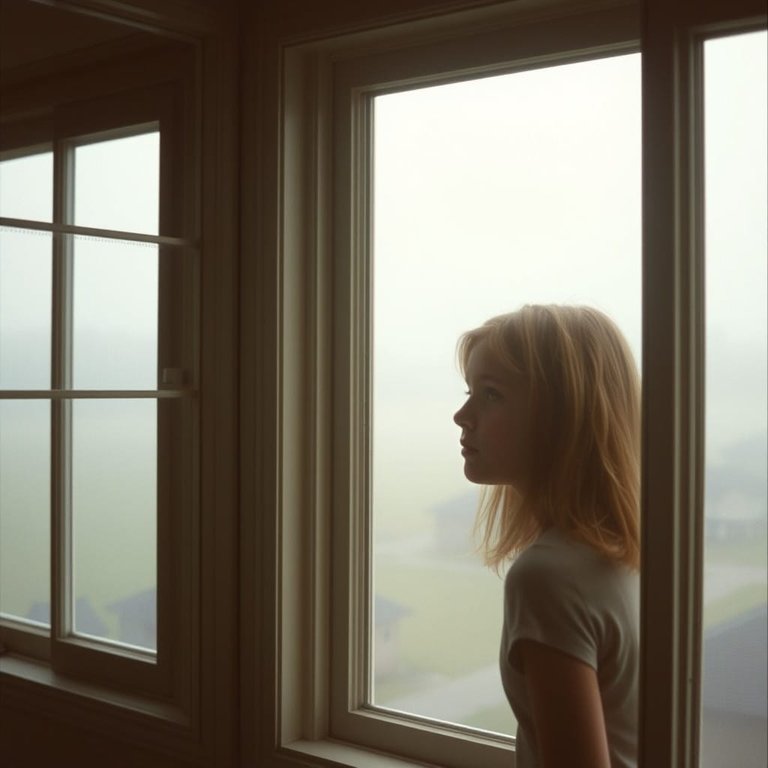"Within five minutes of the transfusion the doctor declared her out of danger. Chucking her under her chin, he said, 'What are you doing here, honey? You're not even old enough to know how bad life gets.'
And it was then Cecilia gave orally what was to be her only form of suicide note, and a useless one at that, because she was going to live: 'Obviously, Doctor,' she said, 'you've never been a thirteen-year-old girl.'"
 (Source: https://us.macmillan.com/books/9781250303547/thevirginsuicides/)
(Source: https://us.macmillan.com/books/9781250303547/thevirginsuicides/)
Remembering The Virgin Suicides is like remembering a fever dream. I had first rented the movie from the library during my high school years, for those were the years of my fascination with suicide... and it left a sour taste in my mouth. Obviously suicide is a very morbid topic on its own, but it is even more unsettling whenever we are left without an answer why, which is the case with The Virgin Suicides.
Over a decade since watching the movie, scenes had been bursting into my mind for no inexplicable reason, so I decided to try reading the novel this time.
Throughout the book, it is mentioned that the girls' mother, Mrs. Lisbon, may have grown up in a religious community (Amish). Although the family currently identifies with some Christian religion, they are not devout and possess no religious decorum. This makes me suspect that Mrs. Lisbon was either part of a cult, or otherwise suffered abuse within her community.
Mrs. Lisbon is wary of boys her daughters' age; something from her lived experience solidified the belief that, "men only want one thing." Her desperate attempts to protect her children resulted in a gross misuse of control that seeped into every faucet of the girls' lives: clothes, music, TV, friends, boys, sports and activities, going out...
"Trip Fontaine didn't see any signs of twistedness in the girls, but later he did say, 'You would have killed yourself just to have something to do.'"
During all of this, their father, Mr. Lisbon, provides no patriarchal counterpart for his wife's abuse of power. Mr. Lisbon's "soyboy" persona is constantly referenced, from his high-pitched voice, to his thinning hair and his bean pole stature. He had always hoped for a son, and upon never receiving one, simply accepted his daughters as a misfortune and left the child-rearing to someone of the same sex. Mr. Lisbon never tried to bond or identify with his children.
"'We just want to live. If anyone would let us.'"
The girls had nobody but each other, and after their parents (mother) took them out of school for missing curfew, they were truly left with no lifelines. They began reaching out for anyone who would listen, which by that point were the neighborhood boys, and these were simply boys who were infatuated with the girls. They ultimately would not care about the Lisbon girls. I think the girls realized this, and that's why they killed themselves in front of the boys.
"We had never known her. They had brought us here to find that out."
Yet, the question remains: why was Cecilia, the youngest, the first one to kill herself? Was it because she had a front row seat to witness the neglect that was already taking place with her sisters? Did she already realize that it was futile to even try? Or, could it truly have been something as childish as pining for the "wrong" person?
"The diary is an unusual document of adolescence in that it rarely depicts the emergence of an unformed ego. The standard insecurities, laments, crushes, and daydreams are nowhere in evidence. Instead, Cecilia writes of her sisters and herself as a single entity."
 (Image created using an AI art generator on Night Cafe)
(Image created using an AI art generator on Night Cafe)
Seeing the way that the neighbors handled Cecilia's suicide was refreshing, because it was realistic. Most people do not acknowledge the deaths closest to them, let alone those of strangers, so it was interesting to see how society affected the Lisbons' ability to heal, how they inadvertantly ostracized the family further in their attempts to "help." I think it is a universal theme that transcends history: mankind's inability to cope with death.
"The result was that the tragedy was diffused and universalized. As Kevin Tiggs put it, 'It seemed like we were supposed to feel sorry for everything that ever happened, ever.' ... "None of the teachers insisted on the Lisbons participating, with the result that all the healing was done by those of us without wounds."
All in all, I really enjoyed the book. Granted, sometimes the author was a bit wordy and he described many people and things that really didn't need such an extensive background. I understand it was to incorporate more details to the setting and atmosphere, but sometimes it was boring!
And I thought he did a wonderful job in portraying teenage boys 😄 Sometimes it is truly startling to be reminded of the "men just want one thing!! phrase, because it really is men's entire reality at that age. Thinking about girls (amongst other things 😳) 24/7.
Makes me want to read it again...
One of my favourite books in all times 💞